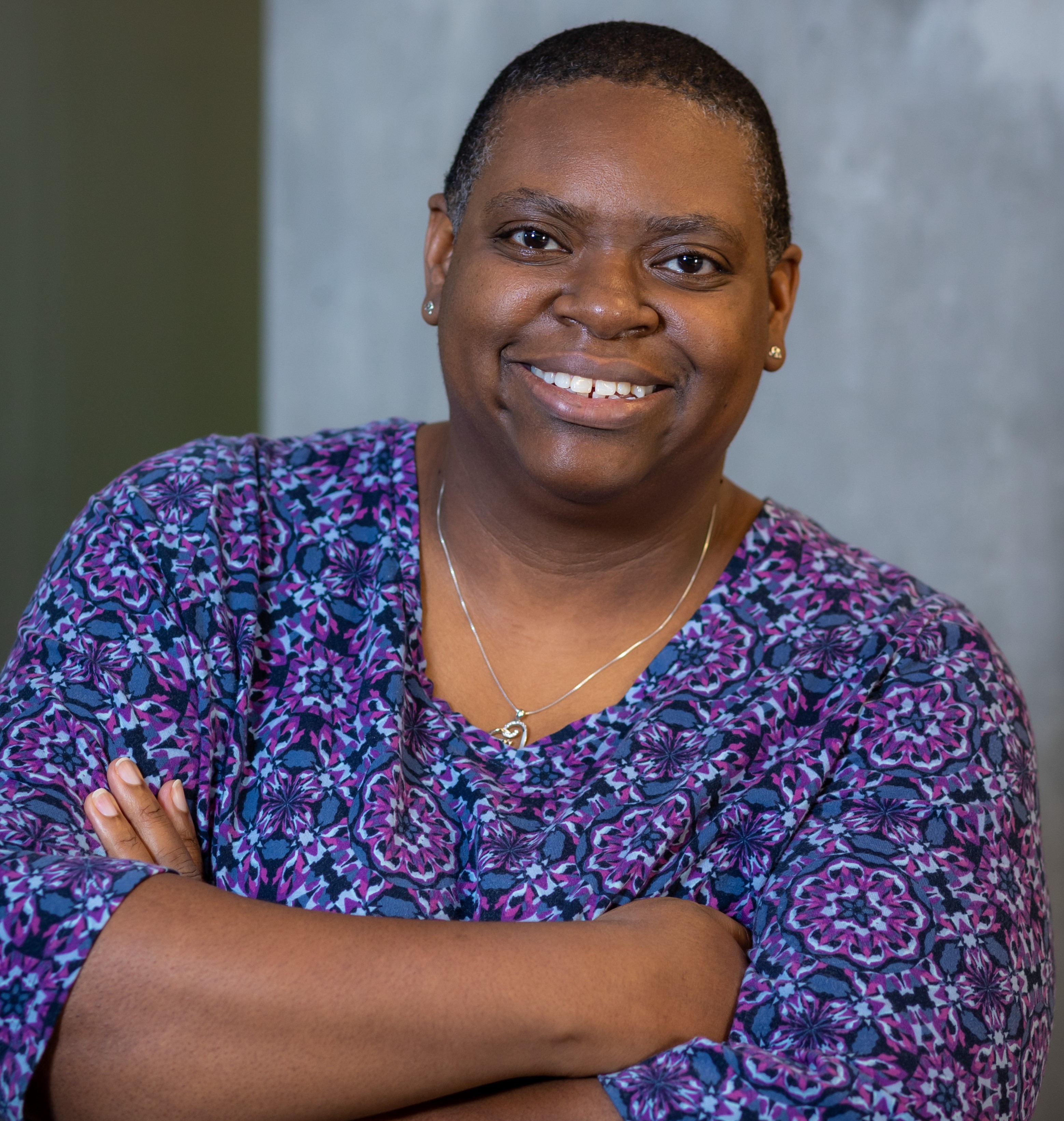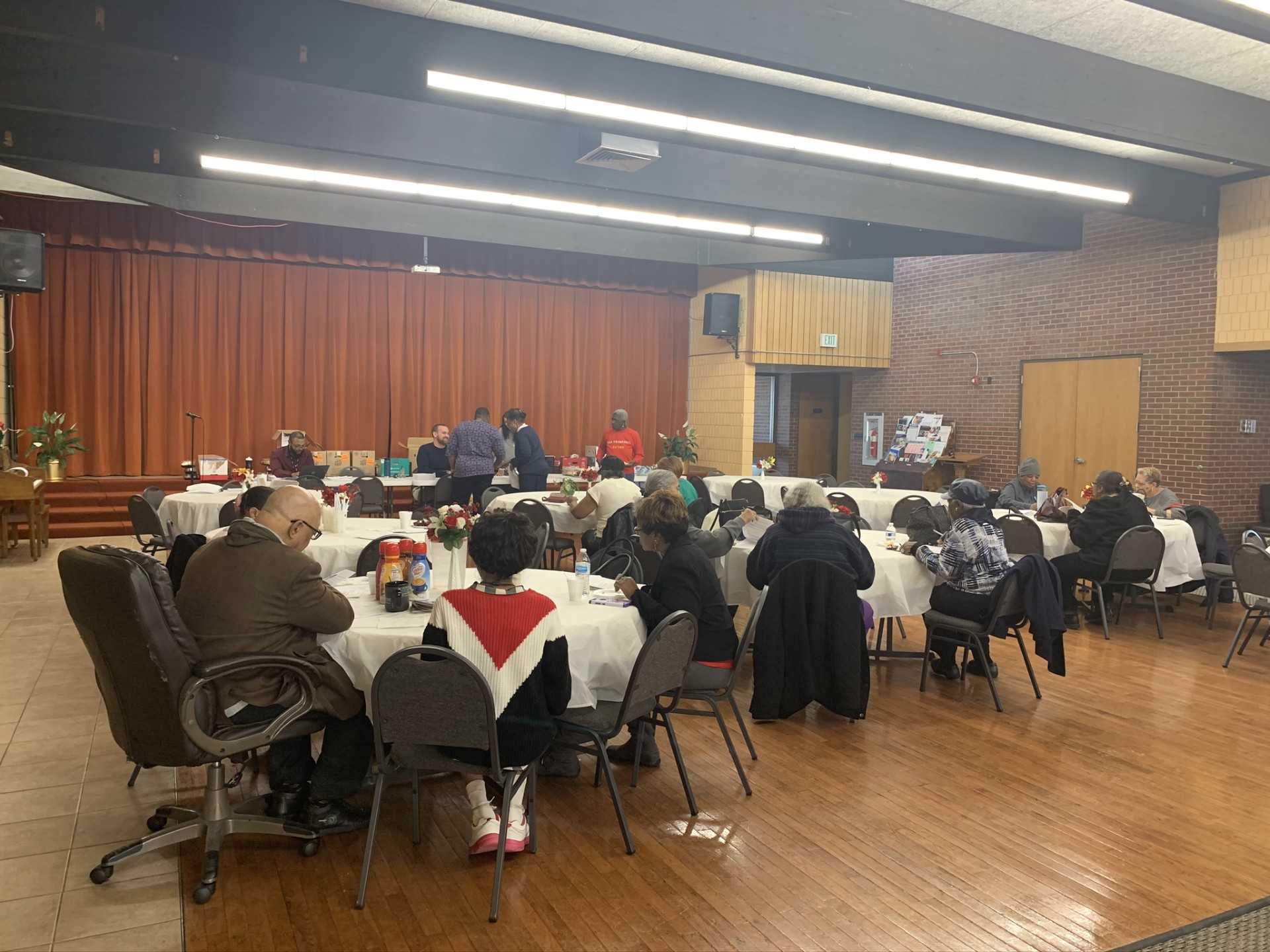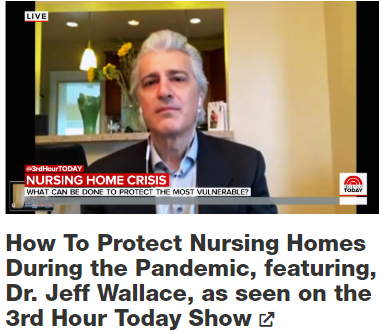Understanding Disparities in Hospice Care
A Researcher Draws on Her Lived Experience
Elias Born | CU Anschutz Multidisciplinary Center on Aging Oct 17, 2024
Hospice care is medical care for those with a life expectancy of 6 months. Often misunderstood, there can be social stigma surrounding hospice that creates barriers to patients and families engaging in this type of care.
Dr. Channing Tate, Assistant Professor in General Internal Medicine, Department of Medicine at CU Anschutz, leads research that is helping us understand and address community perceptions of hospice. Her work focuses on making this care more acceptable and, therefore, accessible to racial and ethnic minoritized populations.
Tate’s passion for her research with older adults stems from growing up in a large extended family, surrounded by her elders. She has 31 first cousins, 29 of whom are older."As people in my family got older and started passing away, I started thinking about these disparities in hospice care, and why people think hospice is a place to go to die. It's so much more than that,” Tate said.
What is hospice?
Hospice is an alternative to treatments like chemotherapy or dialysis – but it’s not a physical location, or institutionalization. Ultimately, the focus is not on curing, but end-of-life care and support. According to the American Cancer Society, most people receive hospice care in-home, with a team of caregivers available, from doctors to social workers to chaplains.
Once enrolled in hospice, the patient’s team plans out aid and support, such as how often the team will come to the house, medications that are needed and more. Hospice also provides aid with the transition to end-of-life and the anxiety and fear that can come with that transition. After a patient has passed away, hospice care extends to the family/caregivers who receive resources and support.
The goal of Tate’s research is not to force anyone to hospice care, but to give families the tools they need to make the decision for themselves.
Looking Ahead
Tate’s current research is focused on outreach and education to Black, older adults with colorectal cancer and lung cancer, enlisting them to help design hospice conversations.

Enthusiastic about engaging older adults as members of the study team, Tate plans to hire an OARS in the future. In the meantime, she’s more than happy to discuss her work, community and more.
“OARS is such a wonderful program to engage older communities and their encore careers, and building that intergenerational connection. Older adults have so much to teach us, and we're losing and forgetting that history, and they're such an important advisor of our society. We really need to be doing more to engage them in the workforce and making sure that we're taking care of them,” Tate said.
